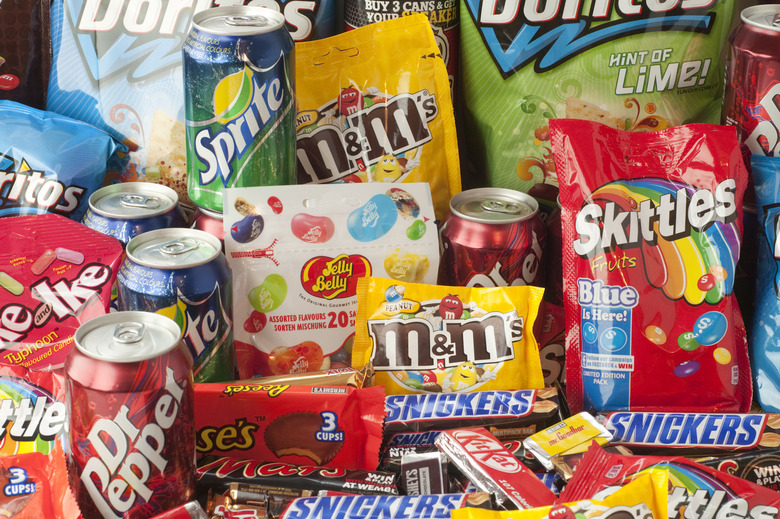Trump Administration Moves To Limit Warning Labels On Junk Food
The Trump administration is aiming to prevent the spread of junk food warning labels in the U.S., Mexico, and Canada. The New York Times reports that the Office of the United States Trade Representative — which is leading North American Free Trade Agreement (NAFTA) negotiations on the American side — is attempting to limit all countries' ability to display health risks on sugary drinks and fatty foods.
After Chile implemented black stop-sign imagery on package fronts in 2016, Mexico and Canada started to discuss using easily recognizable symbols, shapes, or colors to help consumers identify potentially unhealthful products. But the new negotiation would prohibit anything that "inappropriately denotes that a hazard exists from consumption of the food or nonalcoholic beverages."
The New York Times report suggests that the U.S. position is inspired by input from large manufacturers of soft drinks and packaged food. The Grocery Manufacturers Association, which sits on the advisory board to the current round of talks and whose board includes executives from Coca-Cola, PepsiCo, and Mondelez International (owner of brands like Chips Ahoy, Oreo, Ritz, Toblerone, Cadbury, and Trident), is in favor of limiting mandatory warning labels.
Spokesperson Roger Lowe told the paper that the group is in favor of voluntary labeling programs and "supports a modernized NAFTA that will ensure standards are based on science, minimize unnecessary trade barriers, and benefit consumers in all three countries."
Although one recent survey showed that Americans drastically overestimate fat, calories, and carbs in junk food, the rate of obesity has continued to climb. Even without explicit health warnings, though — we should know which snacks are the unhealthiest.
